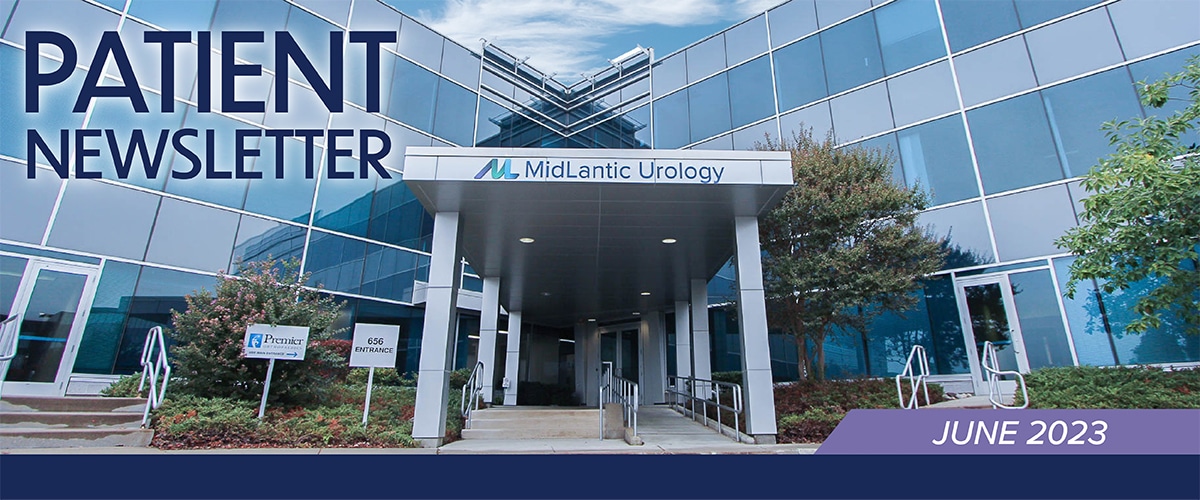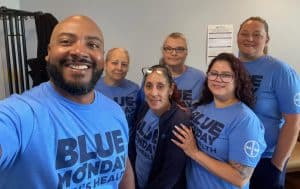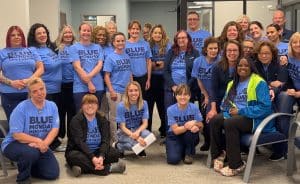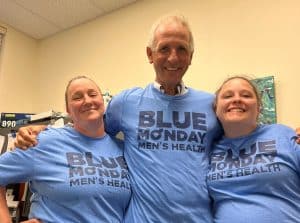Newsletter – June 2023
June 22, 2023

OUTPATIENT SURGERY CENTERS: WHY SHOULD I CARE?
When you need a surgery that doesn’t require an overnight stay, an outpatient surgery center may be a great option. They’ve quickly become a popular alternative to hospitals because they:
- Often specialize in one area of expertise – in our case, urology procedures
- Are a convenient alternative to hospitals, especially with parking and building access
- Are known for providing both quality and value, often less expensive than hospital procedures, depending on your insurance
- Have specialized staff who take the time to focus on patients and families
Opened in 2021, the MidLantic Urology Surgery Center (MUSC) has provided hundreds of urology patients in Philadelphia and surrounding counties with the care they need and the convenience they prefer. Located at 656 East Swedesford Rd in Wayne, just five minutes from the King of Prussia Mall, our state-of-the-art facility was designed specifically for urologic same-day surgeries including diagnostic and preventive procedures. The MUSC has three operating rooms and 11 recovery bays and is licensed as Class C, the highest classification possible for such centers in Pennsylvania.
If your MidLantic urologist recommends an outpatient procedure, ask if the MUSC is right for you.
OUR NEW WEBSITE
Your Go-To Urology Resource
If you have a condition you want to know more about, or think you need to see a urologist, our new website is your go-to source. It’s easy to navigate and is packed with information to keep you healthy and help you prepare for your appointment:
- Thirty urology conditions including prostate issues, incontinence, and BPH. Learn their symptoms, causes, and how each is diagnosed and treated.
- Quarterly newsletters and monthly blog posts including Urology Health Goals for the New Year
You’ll also find details about our team of 60+ specialists, and our 42 locations throughout Philadelphia and its surrounding counties. Start exploring!
 WHEN A GIGGLE CAUSES A DRIBBLE
WHEN A GIGGLE CAUSES A DRIBBLE
You don’t have to live with incontinence.
Urine leakage usually occurs when you have a sudden urge to get to the bathroom and don’t make it in time. This may be caused by a minor infection, or something more serious. Or you may leak when you put pressure on your bladder by coughing, sneezing, exercising, laughing, or lifting.
Either way, there’s good news. In most instances, incontinence is treatable:
Things to try at home: wear protective pads, train yourself to resist the urge to run to the toilet every time you feel the urge, strengthen your pelvic floor with Kegel exercises, cut back on bladder irritants like caffeine, alcohol, and citrus.
If that doesn’t make a noticeable difference, contact a urologist at MidLantic Urology who specializes in treating incontinence and other disorders of the urinary tract. Before your first appointment, keep a voiding diary, which tracks what you drink, when you leak, and what you were doing at the time. The journal will help your urologist more quickly determine the cause and best treatment options.
Your urologist will likely give you a physical exam and review your journal. Next steps may include one of the following:
- Improve pelvic muscle tone with: Kegel exercises (if you haven’t already tried them), biofeedback, vaginal weight training, electrical stimulation of your pelvic floor. Your urologist will explain.
- Prescribed medications
- In-office procedures including Botox injections into the bladder, bulking agents, and nerve stimulation
- Outpatient surgeries including slings, bladder suspension and nerve stimulation
Incontinence isn’t something you have to live with. With 42 locations throughout Philadelphia and surrounding counties, you can be sure there’s a MidLantic urologist close to your home and ready to put you on the path to ending leakage.
Learn more about incontinence in men here and in women here.
HERB’S STORY
How Enlarged Prostate Affected Ability to Urinate

The problem started when I was at an Eagles game with my son. I went to the men’s room about 10 times, but only drips would come out when I tried to urinate. We left the game because of rain, which turned out to be a blessing, because by the time I got home I was in excruciating pain.
Thinking it may be a kidney stone, my wife drove me to the Emergency Department. But instead, they found my bladder was so full, it was about ready to burst. When they inserted a catheter, two liters of urine came flooding out. What a relief!
Dr. Jeffrey Gordon said my prostate was so large it was squeezing my urethra, not allowing me to urinate normally. Although he’s a New York Giants fan, I really liked Dr. Gordon.
I wore a catheter, hoping medication would resolve the problem. But weeks later, with no improvement, Dr. Gordon suggested I meet with Dr. Anand Badri who recommended a Robotic Simple Prostatectomy. The procedure is for patients with a severely enlarged prostate. Dr. Badri said it was like removing the pulp of an orange while leaving behind the peel. Although he’s a San Francisco 49ers fan, I really liked Dr. Badri, too.
The surgery completely resolved my problem and after three months Dr. Badri said I could go back to the gym. Today I’m telling all my friends to see their urologist regularly because I don’t want this to happen to them. My experience with everyone at MidLantic Urology was awesome. The doctors were so great. But their taste in NFL football teams needs some adjustment!
WATCH OUR LATEST WEBINARS
Learn more about Enlarged Prostate and Bladder Control

Bladder Control issues: What causes them and how they’re treated.
You don’t have to live with bladder control problems. Dr. Gaynor explains. Watch HERE.

Tired of Nightly Trips to the Bathroom?
Dr. Hagg reviewed how an enlarged prostate affects urination and how it’s treated. Watch HERE.
BLUE MONDAY
On Monday, June 12 our staff supported Blue Monday to encourage men to take care of their health. A recent Cleveland Clinic study showed that 72% of men would rather clean a bathroom than go to the doctor! That’s a clear call for all men to be more proactive with their health screenings. Early detection, especially for prostate cancer, can save lives.




